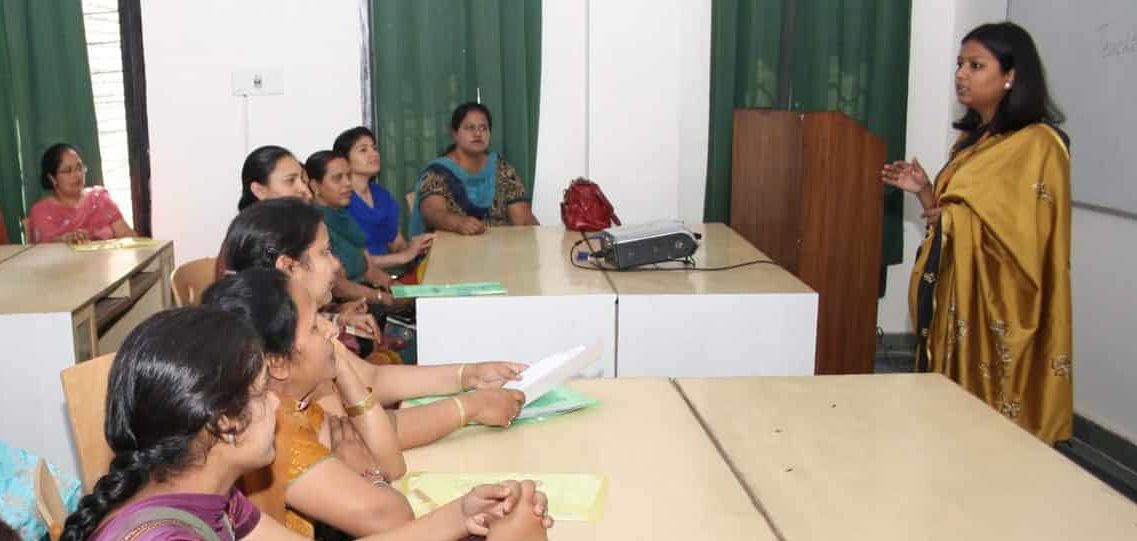Over the last few years, India has seen a substantial increase in access to education. However, the impact of rising enrolments has not translated to a proportionate improvement in skilled labor or a reduction in early drop-out rates. Since around 65% of Indian children attend government schools, it is necessary to determine which internal factors act as deterrents to students completing their education and seeking more well-paying jobs. Aside from infrastructural inadequacies, lack of vocational training in the curriculum, and improper student-to-teacher ratios, the poor quality of education leads to these problems. Consequently, educators have to be provided better incentives to ensure better learning outcomes, and their performances have to be monitored closely through regular inspections.
Taking a significant step towards improving the quality of public sector education, the East Delhi Municipal Corporation announced a scheme in November 2021 wherein teachers in civic schools would be given opportunities to go to foreign universities to acquire better training. As per the scheme, teachers below 42 years of age who have served for at least ten years and have an impeccable teaching record will be offered a funding package of ₹75 lakh to cover the tuition, living costs, and accommodation in the foreign institution. The caveat to this is that the teachers who apply for financial assistance must enroll in one of the top 100 universities globally. Additionally, the course they opt for must pertain to subjects like special education or development of digital education – which can enhance their skills.
While this policy has the potential to create a tangible impact on the quality of education in civic schools, in the long run, there are some concerns on the part of both teachers and students which cast doubts on the viability of this scheme:
- The EDMC’s policy states that the chosen course must be completed within three years, which rules out the possibility of teachers enrolling in more prolonged research-based programs such as a doctorate.
- It also states that if the individual is unable to complete the course, they must reimburse the entire amount to the corporation. If teachers eligible for this scheme are chosen based on their merit and performance record, it must be considered that they might not have the financial capacity to repay the amount if they are unable to complete their courses.
- More than 80% of school teachers in India are women without adequate financial security. They are also likely to face domestic and social constraints that compel them to drop out of foreign training programs.
Regarding the viability of this scheme for the EDMC and other Municipal Corporations, several recent events suggest that more effective planning and better allocation of resources will be necessary for this policy’s implementation. For example, teachers in North and East Delhi civic schools had not received their wages for September and October this year, making it difficult for them to meet even their living expenses. In another instance of administrative inefficiency, in 2020, the municipal bodies in Delhi, notably the North Delhi Municipal Corporation, reportedly failed to distribute textbooks in 714 civic schools, despite being allocated several hundred crores by the NCT. If teachers are not adequately compensated for their services and students are unable to have access to proper educational resources, it is doubtful whether schemes that benefit only a select few teachers every year can impact the overall quality of education. The functionality of the plan is thus contingent on the proper distribution of funds and fulfilling basic needs like timely salary clearances.
Relevant research shows that teaching effectiveness tends to increase more in the second and third decades of a teacher’s career, as evidenced by the fact that students begin to respond more favorably to the teacher’s techniques and learn better. However, since educators can avail this scheme only once in their entire careers, and that too prior to being 42 years of age, it does not take into account the fact that it might benefit both students and the teacher better if more experienced and mature professionals are trained to incorporate newer techniques of teaching.
From the perspective of the students and their parents, perhaps a more viable approach to this scheme would be to train civic school teachers to include vocational learning in the secondary school syllabus. There is a great deal of ambiguity about whether the pedagogical methodologies promoted by programs in foreign universities can be sustainable in the Indian context. A survey conducted by the ASER center shows that in Indian public schools, up to 73% of students of the eighth grade have skills that only allow them to read and comprehend texts from the second grade. Even if the techniques acquired by teachers in foreign institutions are modified to suit Indian students better, making vocational training a part of academic education can improve learning outcomes and equip children to apply for better jobs in the future.
The EDMC’s new scheme may be adopted by other public educational institutes across the nation, but its success depends on factors like access to adequate funds, the professional capacities of teachers, the learning potential of students, and the state of development in the area. One aspect of the policy that seems promising and conducive to improving the quality of education is the clause that teachers who use this scheme must serve at civic schools for at least ten years after their return. This ensures that more effective teaching methods that lead to better learning outcomes can be implemented in the long run. The EDMC’s scheme can undoubtedly benefit both teachers and students, provided that it is paired with infrastructural development, better digital access, changes in the curriculum, and more flexible and need-based educational programs for students.
By Mahashweta Chakravarti, Research Fellow, Policy, LQF
Note: Please support LQF’s work to uplift the underprivileged and marginalized by making a donation through the button below.

